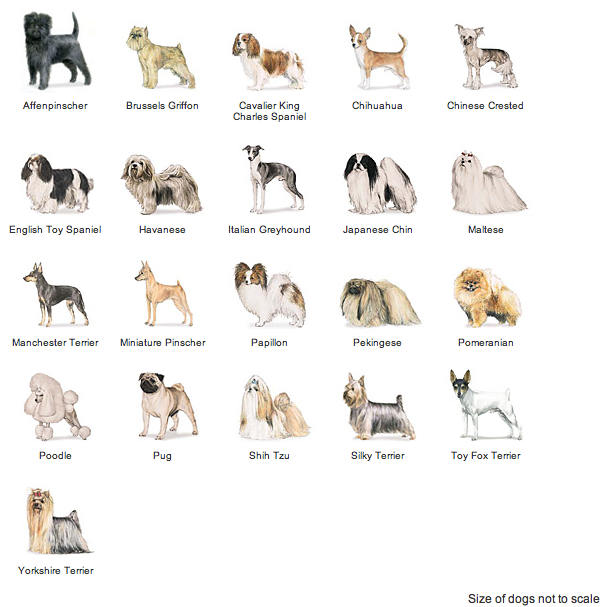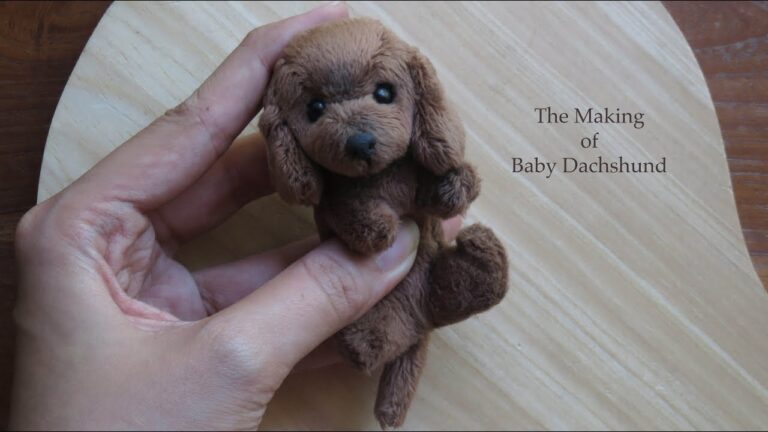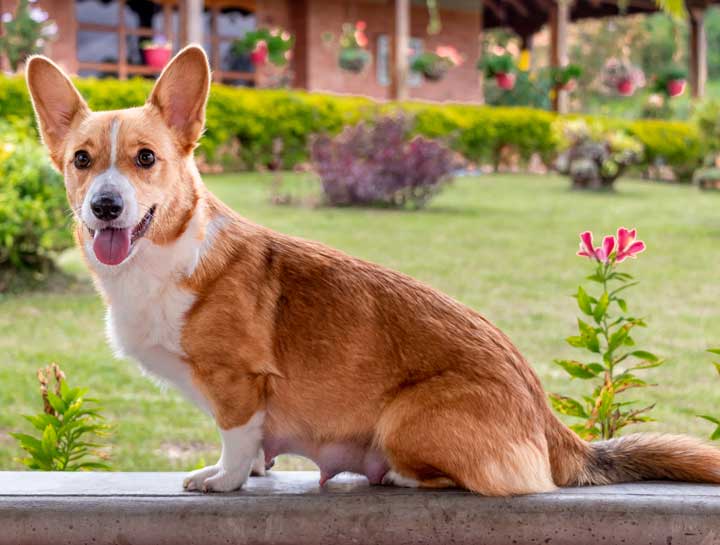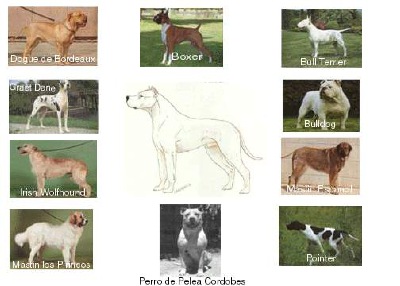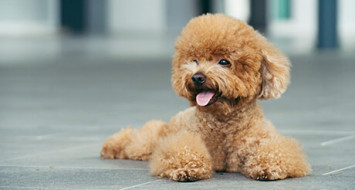What Size Dog is Considered a Toy Breed
Last Updated on May 7, 2024 by Petpalace54
Toy breeds are generally dogs that weigh under 15 pounds. However, there are variations in individual breeds, so weight classifications may differ.
What Size Dog is Considered a Toy Breed? Yes, toy breeds have become increasingly popular with people living in small spaces or who prefer smaller dogs. They are the smallest dog breeds & were originally bred for companionship and as lap dogs. Despite their small size, toy breeds are known for their lively personalities and can be just as demanding as larger breeds.
However, many toy breeds make great family pets and are good with children. However, small children should always be supervised when around dogs, regardless of breed or size. We’ll explore what defines a toy breed, the most popular toy breeds, and other important factors when considering a toy dog.
Table of Contents
What Are Toy Breed Dogs?
Toy breed dogs are small, compact dogs that typically weigh around 5-15 pounds. Some of the popular toy breeds include Chihuahuas, Pomeranians, and Toy Poodles. They are known for their cute and cuddly appearance, making them great lap dogs and companions. But, What Size Dog is Considered a Toy Breed?
Introduction To Toy Breed Dogs
Toy-breed dogs are small in size and known for their cute and cuddly appearance. These dogs are often friendly and are bred to be companions. They are perfect for someone who wants a small dog that is easy to take care of and can fit into a small living space. Toy breeds make great apartment dogs and are beloved by many because of their adorable looks and affectionate nature.
Defining Toy Breed Dog Sizes
Toy breed dogs are typically under 15 inches in height & weigh less than 20 pounds. However, some smaller toy breeds weigh less than 5 pounds, such as the Chihuahua and the Yorkshire Terrier. On the other hand, some larger toy breeds can weigh up to 20 pounds, such as the Havanese and Miniature Pinscher. Generally speaking, toy breeds are the smallest of all dog breeds, and they are bred purely for companionship and not for work or sporting purposes.
Toy Breeds Vs Other Size Groups
Toy breeds are not the only size group for dogs.
- Other size groups include small, medium, large, and giant. Small breeds are larger than toy breeds, but still smaller than most breeds, ranging in size from approximately 15-30 pounds.
- Medium breeds are slightly larger than small breeds and weigh between 30-60 pounds.
- Large breeds weigh more than 60 pounds and can weigh up to 150 pounds.
- Finally, giant breeds are the largest of all breeds and can weigh up to 200 pounds.
It is important to note that size does not determine temperament, & personality can vary greatly within each breed and size group. Toy breeds are generally known for their sweet and affectionate personalities, but it is important to choose a breed that matches your lifestyle and personality. Overall, toy breeds are a wonderful addition to any family, & their small size and sweet nature make them a popular choice for many dog lovers.
Top Toy Breed Dogs
The toy breed dogs generally weigh between 3-7 pounds and are known for their compact size and cute looks. Chihuahua, Pomeranian, & Toy Poodle are some of the popular toy breed dogs that make great apartment pets.
Top Toy Breed Dogs
If you’re looking for a small and adorable furry friend, then a toy breed dog might be the perfect fit for you. Thus, toy breed dogs can make for excellent companions, often known for their loyalty, intelligence, and charm. These breeds are usually 12 inches or smaller and weigh around 5-15 pounds. In this section, we’ll take a closer look at the most popular and calmest toy breed dogs.
Small Dog Breeds
Small dog breeds are usually considered to be toy breeds, making them the perfect size for apartment living or families with children. Some of the popular small dog breeds include the Miniature Bull Terrier, Bull Terrier, Patterdale Terrier, Maltese dog, Miniature Poodle, and Shiba Inu. These breeds are generally playful, affectionate, and require minimal exercise, making them ideal for people with a busy lifestyle.
Most Popular Toy Dog Breeds
The most popular toy dog breeds include the Chihuahua, Cavalier King Charles Spaniel, Pomeranian, Toy Fox Terrier, Miniature Pinscher, and Chinese Crested Dog. These breeds are highly adaptable dogs, fitting into a variety of living situations. Each breed has its unique personality traits, but all make excellent companions. It’s essential to note that while these dogs are tiny, they still require regular exercise & socialization to maintain good health.
Calmest Toy Breeds
If you’re looking for a calm and affectionate furry friend, then you may want to consider these breeds that have reputations for being the calmest toy breeds.
- The Maltese Bichon is another of the small and calm dog breeds par excellence.
- The Shih Tzu is another hypoallergenic breed, as this dog does not shed hair.
- The Teckel, also known as a dachshund because of its appearance, is another of the small and calm dog breeds.
- These breeds are usually happy to cuddle up on the sofa and don’t need as much exercise as their more active counterparts.
In conclusion, toy breed dogs are perfect for anyone searching for an adorable, loyal, & intelligent pet. Whether you prefer the energetic and playful breeds or the calm and affectionate breeds, there’s a toy breed dog out there for you. Remember, these dogs may be small, but they still require regular exercise and socialization just like any other dog.
How To Choose A Toy Breed Dog
Toy breed dogs are typically under 15 inches in height & weigh less than 20 pounds. Some well-known toy breed dogs include the Chihuahua, Pomeranian, and Toy Poodle. When choosing a toy breed dog, consider their energy level, exercise needs, and personality traits.
How to Choose a Toy Breed Dog
Toy breed dogs are cute, adorable, and make great companions. They are small enough to be carried around & are perfect for apartment living. However, before choosing a toy breed dog, there are several factors to consider.
Lifestyle Factors to Consider
When considering adopting a toy breed dog, it is important to think about your lifestyle. Toy dogs are not just lap dogs, they can be active and playful too. If you are an active person, you may want to consider a breed such as the Toy Poodle or the Chihuahua, which are both active and can go on long walks. If you live in a small apartment and do not have much space, you may want to consider a breed such as the Pomeranian or Shih Tzu that does not require much exercise.
Health Risks of Toy Breeds
It is important to note that toy breeds are susceptible to certain health risks due to their small size. One of the most common health problems that toy breeds face is dental problems. Due to their small mouths, their teeth are often overcrowded, leading to dental decay and gum disease. Other common health problems include collapsed trachea, patellar luxation, and hypoglycemia. It is important to discuss these risks with a veterinarian before adopting a toy breed dog.
Training and Socialization
It is important to train and socialize your toy breed dog from a young age. Toy breeds can be difficult to housebreak, so it is important to start training early. Socialization with other dogs and people is also crucial to prevent aggression. Toy breeds can be yappy and territorial, so it is important to set boundaries and teach them proper behavior. Consider enrolling your toy breed dog in obedience classes to ensure they get the proper training and socialization they need.
In conclusion, before choosing a toy breed dog, consider your lifestyle, the health risks of toy breeds, & the importance of training and socialization. With proper care, toy breeds can make wonderful companions and bring joy to your life.
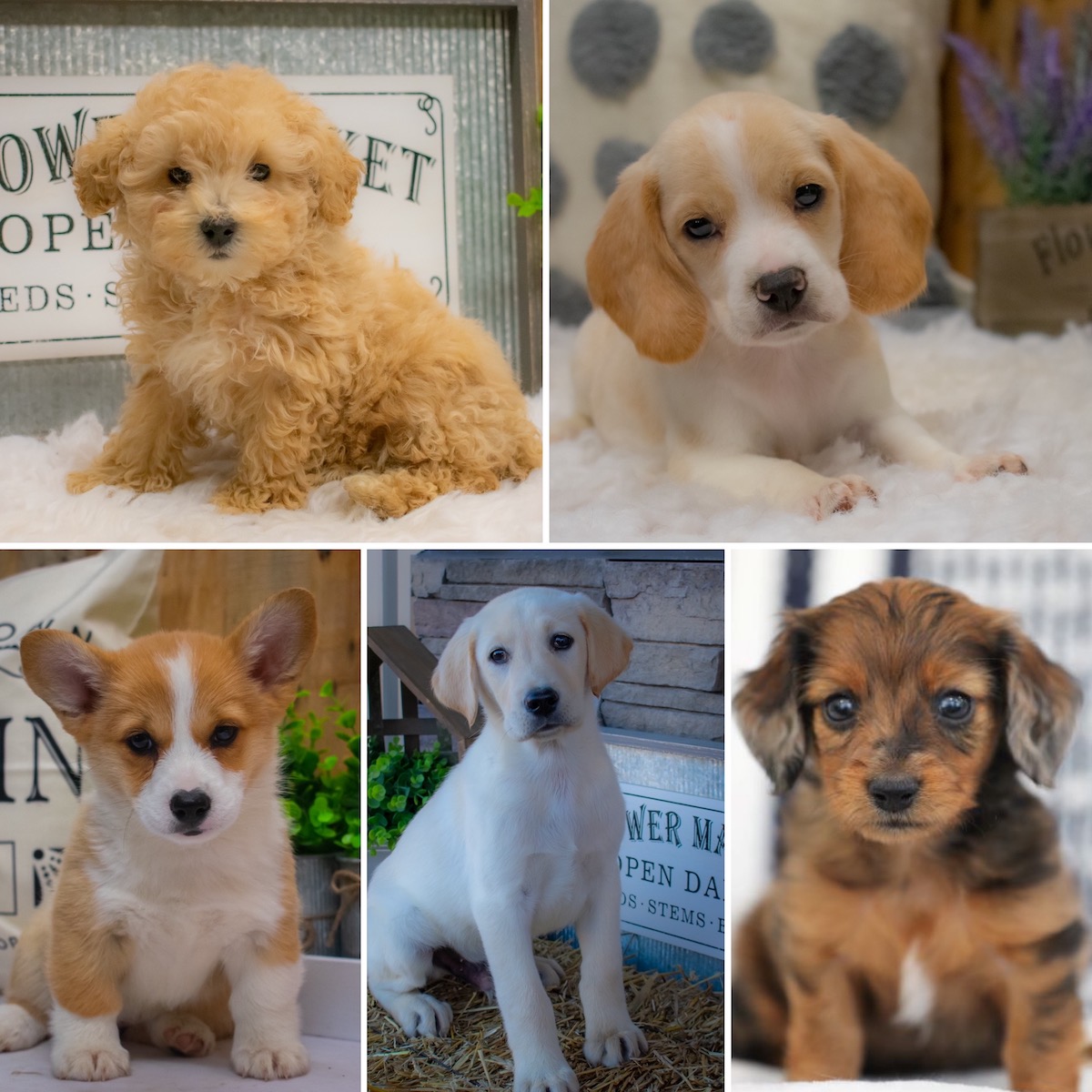
Credit: puppysrus.com
Toy Breed Dog Care
Toy breed dogs are the tiniest of dog breeds & usually weigh less than 10 pounds at maturity. Popular breeds in this category include Chihuahua, Pomeranian, Cavalier King Charles Spaniel, and Toy Fox Terrier.
Diet & Exercise
- Toy breed dogs have unique nutritional requirements, as their small size means they burn calories quickly & need to consume smaller, more frequent meals throughout the day.
- Careful monitoring of their food intake is key to maintaining a healthy weight & preventing obesity.
- It is recommended to feed toy breeds a high-quality, small-breed-specific dog food that is rich in protein and nutrients.
In terms of exercise, toy breeds need daily physical activity to keep them healthy and happy. However, due to their small size, they may tire easily and cannot handle intense exercise. Short walks, indoor play, and interactive toys are excellent ways to provide them with the exercise they need.
Grooming Needs
- Toy breeds are known for their often long and luxurious coats, which require regular grooming to maintain their luster & prevent matting.
- Daily brushing is recommended to keep their coat healthy and prevent tangles. Regular baths are also important to keep them clean.
- Additionally, toy breeds require regular dental care to prevent dental problems. Daily teeth brushing with dog-specific toothpaste and regular dental check-ups are recommended.
General Health Care
- Toy breeds are susceptible to certain health problems, such as dental issues, joint problems, and respiratory issues.
- Regular veterinary check-ups are important to catch any potential problems early on and ensure overall good health.
- Furthermore, their small size makes them more sensitive to temperature changes and more prone to injuries, so it is important to keep their environment safe and avoid exposing them to extreme temperatures.
In conclusion, proper care for toy breed dogs involves providing them with a nutritious diet, daily exercise, regular grooming, and routine veterinary check-ups. By following these guidelines, you can help ensure your toy breed lives a happy and healthy life.
Teacup Dogs Vs Toy Dogs
Toy dogs are typically small breeds that weigh up to 15 pounds, with teacup dogs being even smaller. Some popular toy breeds include Chihuahuas, Pomeranians, and Cavalier King Charles Spaniels. It’s important to consider the specific needs and temperaments of each breed when choosing a toy dog as a pet.
Teacup Dogs vs Toy Dogs
Small dog breeds are incredibly popular in the United States, owing to their compact size, cute appearance, and suitability for apartment living. While all small dogs are considered ‘toy breeds,’ not all toy breeds are classified as teacup dogs. In this article, we discuss the difference between teacup and toy breed dogs and their associated health risks.
What Is A Teacup Dog?
Teacup dogs are the smallest of the small toy breeds, weighing in at less than four pounds when fully grown. These miniaturized dogs are often bred by mating two smaller than average dogs, which is not always a good thing. Because of their small size, teacup dogs are very fragile & can easily break bones, especially if they jump or fall. Due to their petite frame, teacup dogs are also susceptible to hypoglycemia, respiratory issues, and organ failure.
Teacup Dog Breeds Vs Toy Dog Breeds
Toy dog breeds include dogs that are small, but not necessarily as tiny as teacup dogs. Some of the most popular toy dog breeds include: Chihuahua, Yorkshire Terrier, Shih Tzu, Toy Poodle, Pomeranian, Japanese Chin, and Cavalier King Charles Spaniel. Although toy dogs are small like teacup dogs, they tend to be sturdier and less prone to health issues.
Health Risks Of Teacup Dogs
As mentioned earlier, teacup dog breeders often mate two smaller-than-average dogs to produce these miniature pets. However, this selective breeding increases the likelihood of genetic problems passed down from parent to offspring. Furthermore, the small size of teacup dogs makes them susceptible to physical injuries. Activities that would not hurt a normal-sized dog can seriously injure a teacup dog. Moreover, they are prone to numerous health issues such as Hypoglycemia, respiratory issues, hydrocephalus, heart issues, liver problems, and more.
In summary, while teacup dogs might seem cute and appealing, prospective owners should consider their susceptibility to health issues before buying one. Toy dog breeds, on the other hand, make great pets for people who want a small companion without worrying about potential health problems associated with teacup dogs.
Are Toy Breed Dogs For You?
If you’re considering getting a toy breed dog, it’s important to know which breeds fall under this category. Generally, toy breed dogs are dogs that weigh less than 15 pounds when fully grown, such as Chihuahuas, Pomeranians, and Toy Poodles.
Consider their small size, energy level, and exercise needs before making a decision.
Are Toy Breed Dogs for You?
Actually, toy breed dogs are popular for several reasons, including their small size, portability, and cute, adorable appearance. However, owning a toy breed comes with its own set of challenges and responsibilities. Thus, it is essential to consider both the pros and cons of owning such dogs before deciding if they are a good fit for you. Here, we will discuss the advantages and disadvantages of owning a toy breed, who should consider a toy breed, and who should avoid toy breeds.
Pros & Cons Of Owning A Toy Breed
- Toy breed dogs are affectionate, loyal, and friendly, making them great companions for people of all ages, including seniors & children.
- They also require very little space and exercise, making them a suitable choice for apartment living or people with limited mobility.
- However, toy breeds are prone to several health issues, including dental problems, luxating patella, & respiratory problems.
Who Should Consider A Toy Breed
Toy breed dogs are ideal for people who live in small spaces, such as apartments or condos. They are also an excellent choice for individuals who have limited mobility or prefer lower maintenance pets that require less exercise. Toy breeds can be great for seniors and children, as they are loving, affectionate, and easy to handle.
Who Should Avoid Toy Breeds
Although toy breed dogs are cute, adorable, and portable, they may not be the right choice for everyone. People who love outdoor activities such as hiking, jogging, and long walks may find toy breeds incompatible with their lifestyle as these dogs require very little exercise. Toy breeds may also not be suitable for households with very young children, as they may accidentally injure them due to their fragile build. Individuals who prefer low-maintenance dogs may also want to avoid toy breeds as they require regular grooming & dental care.
In conclusion, toy breed dogs can be great companions for the right person. It is essential to consider both the advantages & disadvantages of owning such dogs before deciding if they are the right fit for you. Ultimately, your lifestyle, needs, and preferences will determine if a toy breed dog is the right choice for you.
Training & Socialization Of Toy Breeds
Toy breeds refer to dogs that generally weigh between 4-7 pounds, with a height ranging from 6-12 inches and a length of 12-13 inches. Proper training and socialization of toy breeds is essential to ensure their good behavior and to prevent behavioral issues that can arise if they are not trained properly.
Behavioral Traits Of Toy Breeds
Toy breeds are loved for their small size and adorable looks, but they have some unique behavioral traits that require extra attention during training and socialization. Because of their tiny size, toy breeds are more delicate, sensitive, & prone to anxiety and fear than larger dog breeds. They may display nervousness, shyness, and aggression towards strangers or other dogs if not socialized properly.
Training Techniques For Toy Breeds
Training a toy breed requires a different approach than training a larger dog breed. Toy breeds are smaller, so their training sessions should be shorter and more frequent. Positive reinforcement and rewards-based training have been proven effective for toy breeds. Be consistent in your training techniques, and avoid harsh punishment or negative reinforcement. Start with basic obedience commands such as sitting and staying, and then move on to more challenging commands.
Socializing Toy Breeds
Socialization is crucial for toy breeds since they can be territorial and defensive towards strangers. Socializing your toy breed early on sets them up for success by helping prevent fear and anxiety towards people, other dogs, & new situations. Exposing your toy breed to different environments, sounds, and smells helps to build their confidence and reduce the risk of fear of biting. But remember to introduce new experiences gradually and positively, & never force your toy breed to interact with a new pet or person if they are uncomfortable.
In conclusion, toy breeds may be small, but they require just as much attention, love, and training as larger breeds. By understanding their unique behavioral traits, using appropriate training techniques, & socializing them early on, you can help your toy breed adapt to new environments, learn obedience, and get along with people and other dogs.
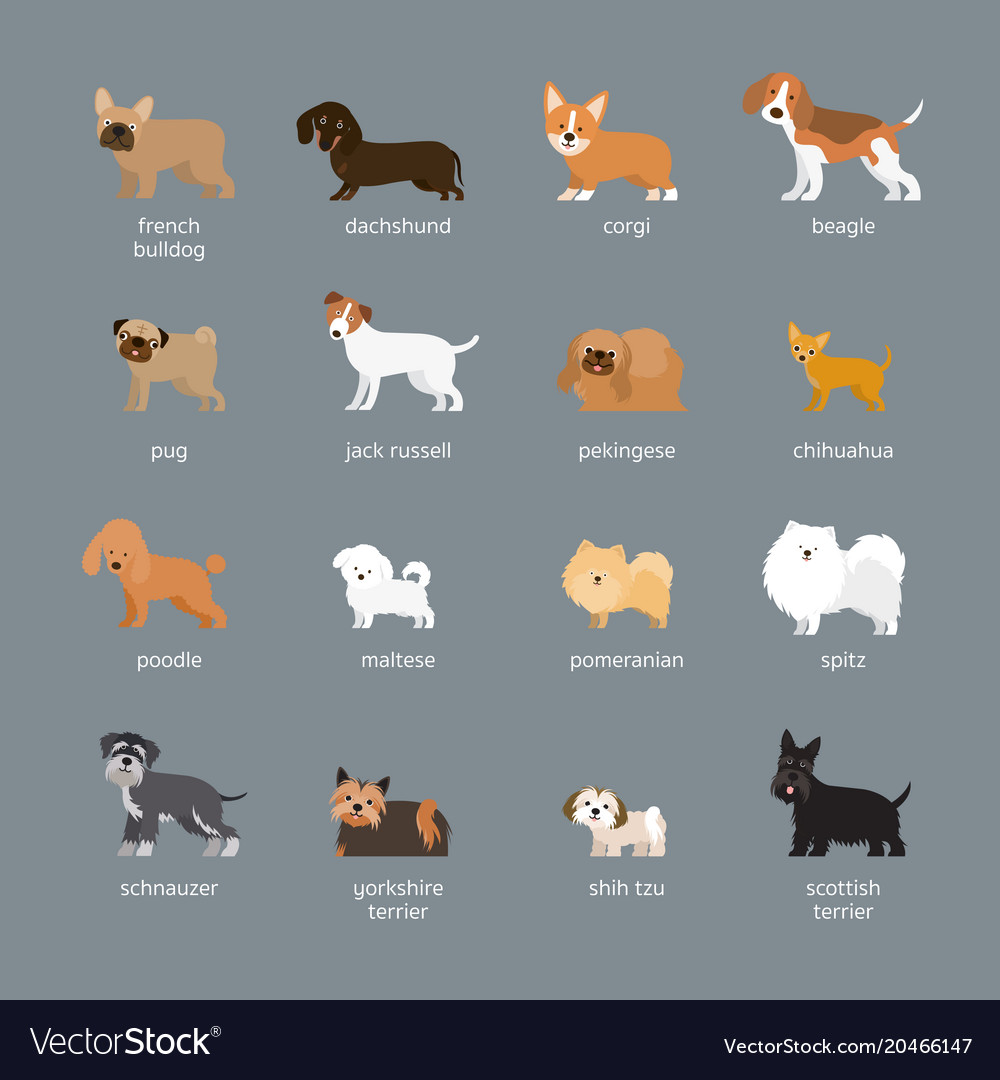
Credit: www.vectorstock.com
:max_bytes(150000):strip_icc()/gettyimages-114166947-1-268128f97e5c415baede328c1fe32f55.jpg)
Credit: www.southernliving.com
Frequently Asked Questions Of What Size Dog Is Considered A Toy Breed
What Dog Breeds Are Toy Size?
Toy size dog breeds include Miniature Bull Terrier, Bull Terrier, Patterdale Terrier, Maltese dog, Miniature Poodle, Shiba Inu, Chihuahua, Cavalier King Charles Spaniel, Pomeranian, Toy Fox Terrier, Miniature Pinscher, and Chinese Crested Dog, among others. These breeds are generally smaller in size, with a maximum weight of around 10-12 pounds.
Calmest toy breed dogs include Maltese Bichon and Shih Tzu, among others. Teacup dogs, on the other hand, are the smallest of the toy breeds.
What Size Is A Teacup Dog?
A teacup dog is a small breed of toy dog. The size of a toy breed varies, but teacup dogs are typically less than 5 pounds and stand less than 9 inches tall. They are smaller than a typical toy breed and are often referred to as “micro” or “miniature” dogs.
What Size Dog Is Considered Small Breed?
Dogs that weigh up to 20 pounds and measure less than 16 inches in height are considered small or toy breeds. Some common small dog breeds are Chihuahua, Pomeranian, and Shih Tzu. These breeds are great for apartment living and require less exercise than larger breeds.
What Is The Calmest Toy Breed Dog?
The Maltese Bichon, Shih Tzu, and Teckel (dachshund) are some of the calmest toy breed dogs. Hypoallergenic and with limited shedding these breeds make the perfect lap dogs.
Final Words
After reading this article you all know about What Size Dog is Considered a Toy Breed. Toy breed dogs are those who weigh no more than 15 pounds and stand less than 18 inches tall. Despite their small size, they are big on personality and are popular as companions or lap dogs. It’s important to note that owning a small dog requires proper training, socialization & care to guarantee their well-being.
Finally, if you’re looking for the perfect pint-sized pet, be sure to do your research & choose a breed that best suits your lifestyle and personality.

